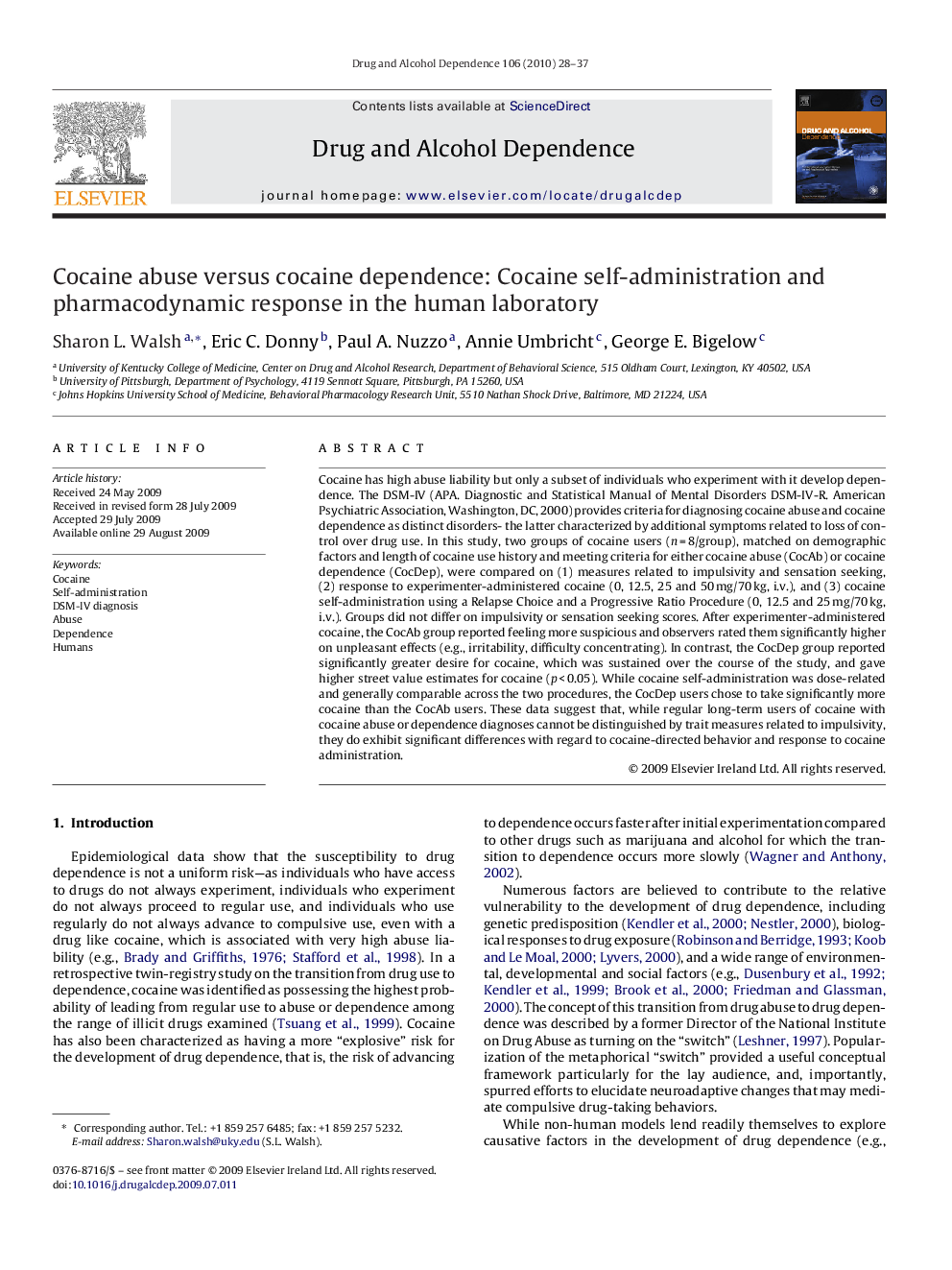| Article ID | Journal | Published Year | Pages | File Type |
|---|---|---|---|---|
| 1070534 | Drug and Alcohol Dependence | 2010 | 10 Pages |
Cocaine has high abuse liability but only a subset of individuals who experiment with it develop dependence. The DSM-IV (APA. Diagnostic and Statistical Manual of Mental Disorders DSM-IV-R. American Psychiatric Association, Washington, DC, 2000) provides criteria for diagnosing cocaine abuse and cocaine dependence as distinct disorders- the latter characterized by additional symptoms related to loss of control over drug use. In this study, two groups of cocaine users (n = 8/group), matched on demographic factors and length of cocaine use history and meeting criteria for either cocaine abuse (CocAb) or cocaine dependence (CocDep), were compared on (1) measures related to impulsivity and sensation seeking, (2) response to experimenter-administered cocaine (0, 12.5, 25 and 50 mg/70 kg, i.v.), and (3) cocaine self-administration using a Relapse Choice and a Progressive Ratio Procedure (0, 12.5 and 25 mg/70 kg, i.v.). Groups did not differ on impulsivity or sensation seeking scores. After experimenter-administered cocaine, the CocAb group reported feeling more suspicious and observers rated them significantly higher on unpleasant effects (e.g., irritability, difficulty concentrating). In contrast, the CocDep group reported significantly greater desire for cocaine, which was sustained over the course of the study, and gave higher street value estimates for cocaine (p < 0.05). While cocaine self-administration was dose-related and generally comparable across the two procedures, the CocDep users chose to take significantly more cocaine than the CocAb users. These data suggest that, while regular long-term users of cocaine with cocaine abuse or dependence diagnoses cannot be distinguished by trait measures related to impulsivity, they do exhibit significant differences with regard to cocaine-directed behavior and response to cocaine administration.
